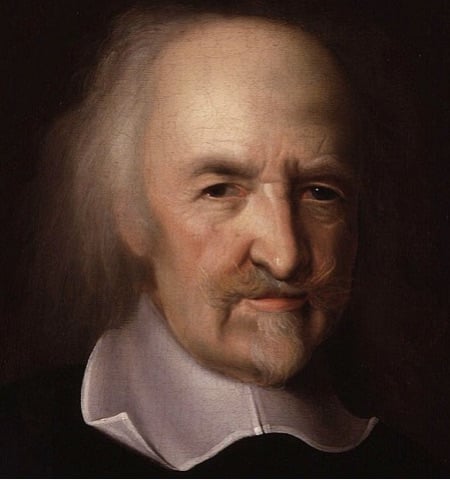
Thomas Hobbes was born on April 5, 1588 in Westport, England. He was a gifted student who, by the time he was 14 years old, was an outstanding Greek and Latin scholar having, translated Euripides’ Medea from Greek into Latin. In 1608 he graduated with a B.A. from Oxford University and in the years that followed, traveled throughout continental Europe where he met a variety of esteemed scientists and mathematicians including Galileo, Mersenne, and Roberval. He returned to England in 1637, but when the Civil War broke out in England in 1640, Hobbes was forced to flee for his life to France. While in France, he wrote his objections to Descartes’ Meditations and in 1642 published De Cive, presenting his ideas about the relationship between the church and the state.
Hobbes remained on the continent until 1651, the year when he published the Leviathan in which he proposed that people must live in communities with local governments and enforceable codes of laws for their own protection. Though he considered himself a mathematician, Hobbes was not generally embraced by the mathematics community and history celebrates him as a moral philosopher. However, Hobbes dismissed moral philosophy, stating:
Moral philosophy is nothing else but the science of what is good, and evil, in the conversation, and society of mankind. Good, and evil, are names that signify our appetites, and aversions; which in different tempers, customs, and doctrines of men, are different.
